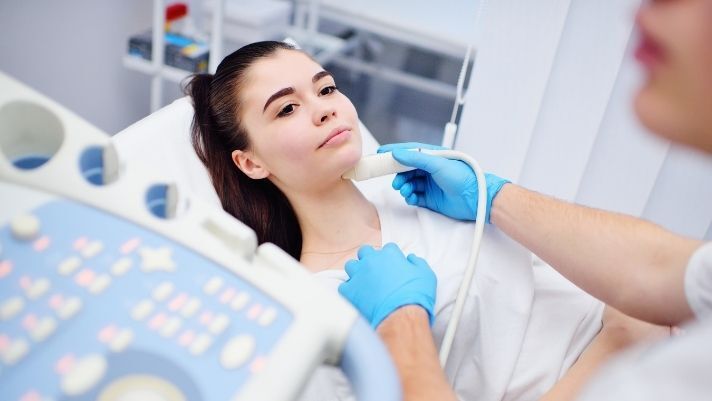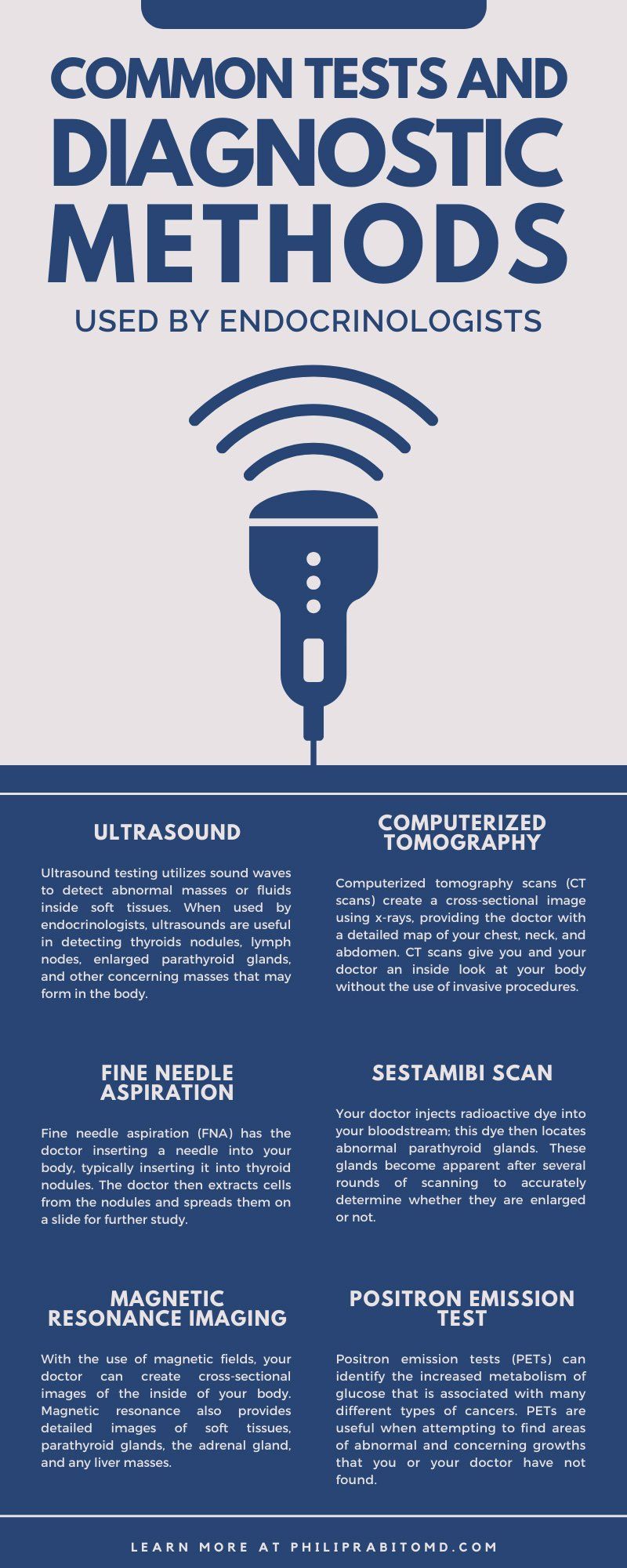
Problems with the endocrine system and problems with the body’s regulation of chemicals and hormones can prove to be challenging issues to treat and diagnose. However, there are common tests and diagnostic methods used by endocrinologists to help determine what specific condition you may be suffering from.
Knowing what tests endocrinologists run will better inform your treatment options and provide you with a road map of what you need to do in order to succeed in your health goals. Be aware of what to expect before going into an endocrinologist’s office and know what testing methods are available to you.
What Are Some Common Symptoms of Endocrine Issues?
Before going into a doctor’s office, you need to know what signs to watch out for. Chemical and hormonal problems can stem from underlying issues such as diabetes, Cushing’s Syndrome, and Addison’s Disease, all of which require medical attention.
While showing symptoms does not necessarily mean you have these disorders, you must still consider the possibility. Some common symptoms of endocrine disorders include:
Diabetes
- Fatigue
- Frequent urination
- Unexplained weight loss or weight gain
- Chronic thirst or hunger
Cushing’s Syndrome
- High blood sugar
- Sudden mood changes
- Thinning and weakening of bones
- Skin discoloration
Addison’s Disease
- Depression
- Low blood sugar
- Loss of appetite
- Salt cravings
Acromegaly
- Body and joint aches
- Sexual disfunction
- Sleep apnea
- Abnormally large hands, feet, nose, lips, or tongue
What Tests Do Endocrinologists Run?
Once you identify one or several concerning symptoms, your next step is to contact an endocrinologist to perform some tests. This is a critical component to determine what specific disorder you may be experiencing, and necessary to move forward with your treatment plan.
When going in for a check-up, it’s best to know what testing procedures and methods endocrinologists utilize, so you’re not caught off-guard or made uncomfortable. Some of the common testing methods you may experience are:
Ultrasound
Ultrasound testing utilizes sound waves to detect abnormal masses or fluids inside soft tissues. When used by endocrinologists, ultrasounds are useful in detecting thyroids nodules, lymph nodes, enlarged parathyroid glands, and other concerning masses that may form in the body.
Computerized Tomography
Computerized tomography scans (CT scans) create a cross-sectional image using x-rays, providing the doctor with a detailed map of your chest, neck, and abdomen. CT scans give you and your doctor an inside look at your body without the use of invasive procedures.
Fine Needle Aspiration
Fine needle aspiration (FNA) has the doctor inserting a needle into your body, typically inserting it into thyroid nodules. The doctor then extracts cells from the nodules and spreads them on a slide for further study.
This process of obtaining cells from the body is repeated several times to gain a wider sampling base. The slides are sent off to a specialist, typically a cytopathologist, for a deeper examination of the cells. The cytopathologist then returns the sample to your doctor with a diagnosis.
Sestamibi Scan
Your doctor injects radioactive dye into your bloodstream; this dye then locates abnormal parathyroid glands. These glands become apparent after several rounds of scanning to accurately determine whether they are enlarged or not.
Magnetic Resonance Imaging
With the use of magnetic fields, your doctor can create cross-sectional images of the inside of your body. Magnetic resonance also provides detailed images of soft tissues, parathyroid glands, the adrenal gland, and any liver masses.
Positron Emission Test
Positron emission tests (PETs) can identify the increased metabolism of glucose that is associated with many different types of cancers. PETs are useful when attempting to find areas of abnormal and concerning growths that you or your doctor have not found.
Venous Sampling
This type of sampling has a catheter inserted into one of your veins; it then extracts the blood for a doctor to examine the hormone levels in that specific area of the body. The purpose of venous sampling is to determine which areas of the body have abnormal hormone secretion, checking localized areas to narrow down the search. This process is methodical, invasive, and can be uncomfortable for patients after extended periods of testing.
Make It Clear What You’re Comfortable With
When it comes to your body, you have the final say of what doctors do to it. They cannot administer any tests or perform any procedures without your consent. If a diagnostic test makes you uncomfortable, whether it is due to invasive means of probing or concerning materials injected into your body, you do not have to go through with it. There are alternative tests you can take to put your mind at ease.
Consider the Advice Of Your Doctor
While there are some tests you may be uncomfortable with, it is in your best interest to listen to your doctor’s recommendation and consider what they have to say on the matter. If they feel that a particular test is necessary to accurately diagnose your condition, but you are uneasy about the methods used, voice your concerns to your doctor and find a compromise. As previously mentioned, the decision is ultimately up to you, and your treatment will proceed at a pace dictated by you.
Don’t Write Off Treatments Immediately
If your doctor suggests a treatment that you’re not interested in undergoing, such as venous sampling, allow them time to explain the exact procedure that the testing involves. Hearing more information about diagnostic procedures may convince you that they are safe or necessary for your continued health, but don’t feel as though you’re forced to choose a treatment because your doctor recommends it.
Find the Right Doctor for You
Don’t feel that you need to settle for the first specialist you find; visit multiple doctors and find one who is most understanding and knowledgeable about your needs. Don’t be afraid to ask questions or make it known when a concerning topic comes up during your conversations; every piece of information you give them informs how they treat your condition. Be aware of what tests endocrinologists run and always come prepared with any questions or concerns.
Dr. Philip Rabito is an endocrinologist in New York City with extensive experience in helping treat patients with their bodily chemical and hormonal conditions. Dr. Rabito will work with you to help you better understand your condition and develop a treatment plan that best fits your lifestyle and medical needs.


